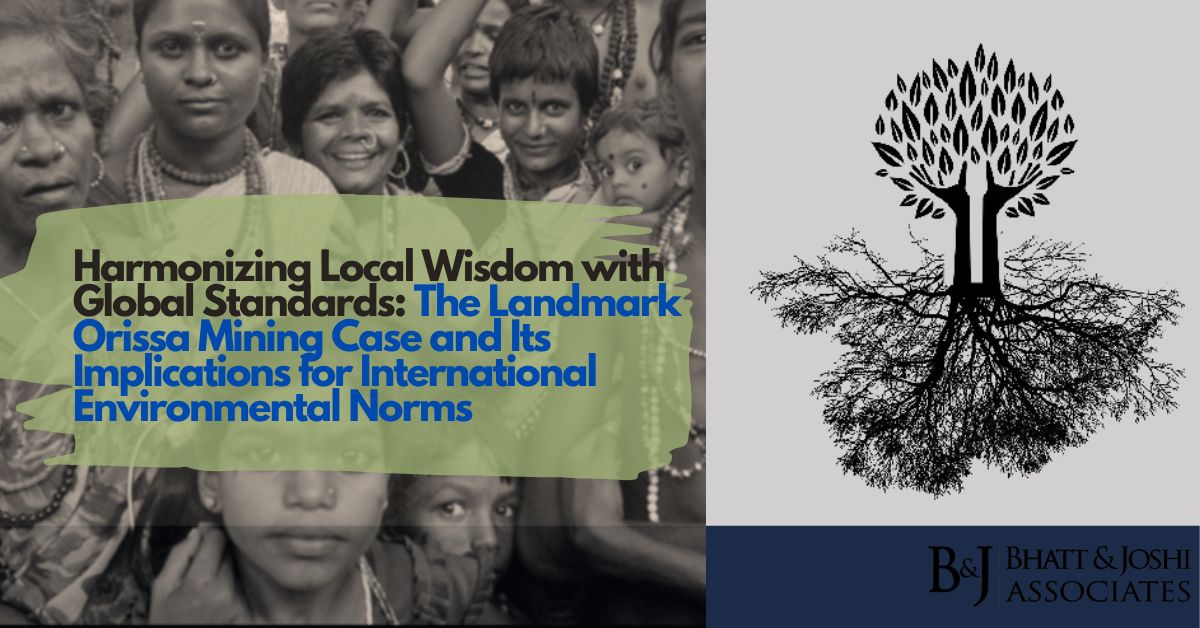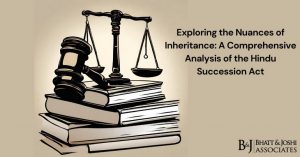Harmonizing Local Wisdom with Global Standards: The Landmark Orissa Mining Case and Its Implications for International Environmental Norms
Background
The Orissa Mining Corporation Ltd vs Ministry Of Environment & Forest & Ors. ruling is not just a legal milestone for India; it signifies a crucial intersection between the nation’s environmental jurisprudence and the broader landscape of international environmental and indigenous rights standards. This article delves into the intricate layers of the judgment, examining how the principles embedded within it align with global practices and offering nuanced insights for other jurisdictions grappling with the delicate balance of environmental conservation and indigenous rights.
International Environmental and Indigenous Rights Standards: A Global Framework
Before delving into the specifics of the Orissa Mining judgment, it’s imperative to understand the global context defined by key instruments such as the United Nations Declaration on the Rights of Indigenous Peoples (UNDRIP) and the Convention on Biological Diversity (CBD). These standards set the stage for principles aimed at protecting indigenous rights and promoting biodiversity conservation on a worldwide scale.
UNDRIP and CBD Principles
The UNDRIP emphasizes the inalienable right of indigenous peoples to safeguard their cultural and natural heritage. It mandates that states engage in meaningful consultations with indigenous communities before embarking on projects that may impact their lands. Meanwhile, the CBD advocates for the sustainable management of biodiversity, recognizing the invaluable role of indigenous communities in conservation through the utilization of traditional knowledge.
The Orissa Mining Case in a Global Perspective: Bridging Local and International Norms
The Orissa Mining judgment, as a legal synthesis of international principles within the Indian legal framework, draws heavily on the Forest Rights Act (FRA) and the Forest Conservation Act (FCA). It reflects a delicate balance between indigenous rights and environmental conservation, setting a precedent for how legal systems can navigate these complex issues.
Championing Indigenous Rights in the Orissa Mining Case
One of the key aspects of the judgment is the emphasis on obtaining Gram Sabha consent for forest land diversion, aligning closely with UNDRIP’s requirement for prior and informed consent. This underscores the acknowledgment of indigenous communities’ agency in decisions that directly impact their ancestral lands. The recognition of the profound connection between indigenous peoples and their territories mirrors the UNDRIP’s focus on preserving cultural heritage alongside environmental integrity.
Advancing Environmental Conservation
Simultaneously, the Orissa Mining judgment upholds the principles of the Forest Conservation Act, demonstrating a commitment to biodiversity conservation that resonates with the objectives outlined in the CBD. The stringent application of the FCA in evaluating the mining project underscores a dedication to environmental protection. The ruling highlights the importance of comprehensive environmental impact assessments and community consultations, principles that echo the sustainable development models advocated by international conventions.
Insights for Other Legal Systems: A Model for Balancing Environmental Preservation and Indigenous Rights
The Orissa Mining Corporation Ltd vs Ministry Of Environment & Forest & Ors. judgment serves as a valuable case study for jurisdictions globally, offering insights into how indigenous rights and environmental conservation can be seamlessly integrated into national legal frameworks.
Lessons from the Orissa Mining Case: Harnessing Indigenous Wisdom for Conservation
A pivotal lesson from the case is the demonstration of how traditional knowledge and community governance can serve as powerful tools in environmental management. By recognizing and leveraging indigenous practices, other jurisdictions can enhance their conservation strategies. This calls for a shift in perspective, viewing indigenous communities not merely as stakeholders but as essential partners in sustainable environmental practices.
Balancing Development with Environmental Responsibility
The judgment acts as a reminder to carefully evaluate economic development against potential environmental damage and social disruption. It advocates for a more holistic approach to project planning and implementation, urging other legal systems to consider the long-term implications of their decisions on both the environment and indigenous communities. This balance ensures that development is not pursued at the expense of irreparable ecological harm.
Conclusion: The Orissa Mining Case – Paving the Way for a Sustainable and Inclusive Future
The Orissa Mining Corporation Ltd vs Ministry Of Environment & Forest & Ors. judgment stands as a testament to India’s progressive stance on environmental governance and indigenous rights. Beyond its local implications, the case bridges the gap between domestic legislation and international standards. By upholding the principles of the Forest Rights Act and the Forest Conservation Act within the broader global context, the judgment not only protects the rights of India’s indigenous communities but also contributes significantly to the global discourse on sustainable development and biodiversity conservation. As nations worldwide strive to achieve the delicate balance between development and conservation, the lessons from this landmark case offer a comprehensive roadmap. These insights provide a blueprint for crafting legal frameworks that are both ecologically responsible and culturally sensitive. In a future where development and conservation must coexist harmoniously, the Orissa Mining judgment stands as a guiding light, showing how legal systems can navigate the intricate terrain of environmental preservation and indigenous rights, fostering a world where sustainable practices and inclusive development go hand in hand.










